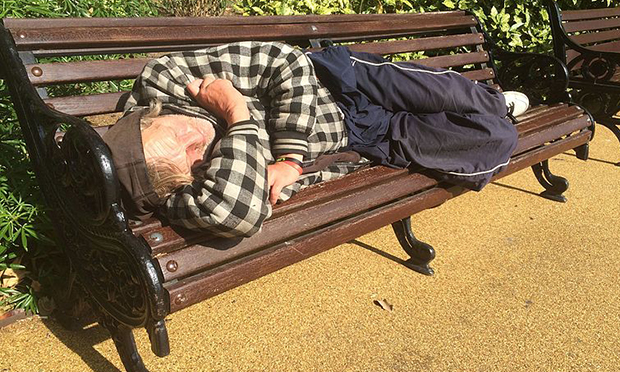Hackney’s homeless denied ‘appropriate’ end-of-life care

Researchers selected Hackney due to its high volume of homeless people. Photograph: Allan Warren
Terminally ill homeless people in Hackney are “falling through the cracks”, according to a new report published today.
Researchers from charities Marie Curie, Pathway and St Mungo’s and NHS body Coordinate My Care worked with 127 homeless people and hostel staff in Hackney, Westminster and Lambeth.
Their findings, published in the journal Palliative Medicine, show many homeless people in these three boroughs are still living in hostels even as they approach death.
The wide-ranging study also revealed hostel staff end up caring for some of the sickest homeless people despite not having the necessary training or support.
University College London’s Dr Caroline Shulman, who led the research, said: “Hostels provide temporary accommodation. They are not designed to meet the needs of seriously or terminally ill residents.
“Hostel staff often struggle to secure additional support from social services or palliative care services for their residents who have complex problems.”
The report says homeless people with advanced ill health rarely receive adequate care, and this results in repeated emergency hospital admissions in the last months, weeks or days of life.
Marie Curie said the study shows “homeless people who are terminally ill are falling between cracks in services, and are not able to access the same level of support as others”.
Simon Jones, the charity’s policy director, said: “This important study highlights that for homeless people, home represents something completely different – a hostel, or on the street. Everyone deserves compassionate care and a dignified death, regardless of where they normally live, or their personal circumstance.”
Professor Steve Field from government health watchdog the Care Quality Commission (CQC) said: “As a GP I have seen how the lack of appropriate and sensitive services can mean that homeless people are denied the compassionate healthcare, dignity and respect that they deserve at the end of their lives.
“This research makes it clear that by working together, healthcare services and the wider system – such as housing, social services and the charity sector – have a vital role to play in improving the quality and co-ordination of care for homeless people as they reach the end of life.
“Everyone has the right to safe, high quality, and compassionate health and social care. Through our inspections we have seen services that are providing outstanding care to people who do not have secure housing but it takes strong, responsive leadership and dedicated staff.
“In the coming months, CQC will be publishing a detailed report making recommendations on how we, as a society, can meet our responsibility to the most vulnerable people in our communities, who are currently being let down at a time when they need help and support the most.”
